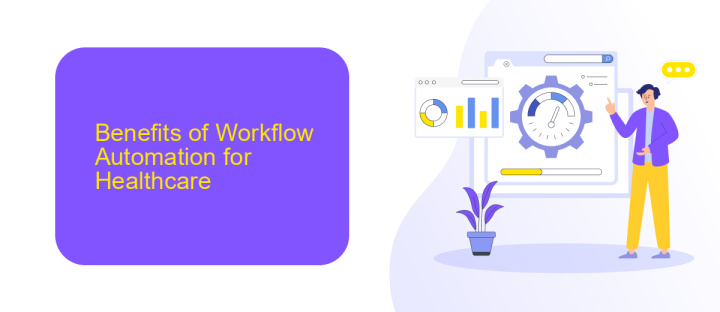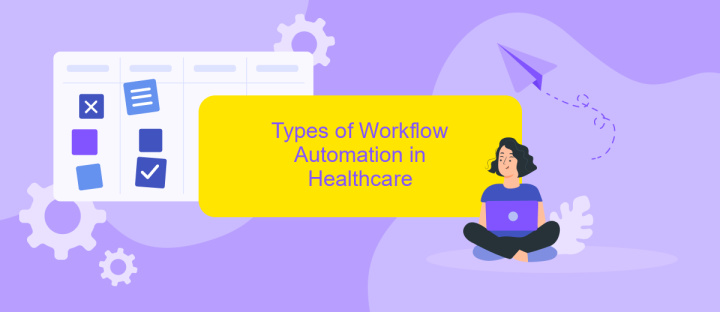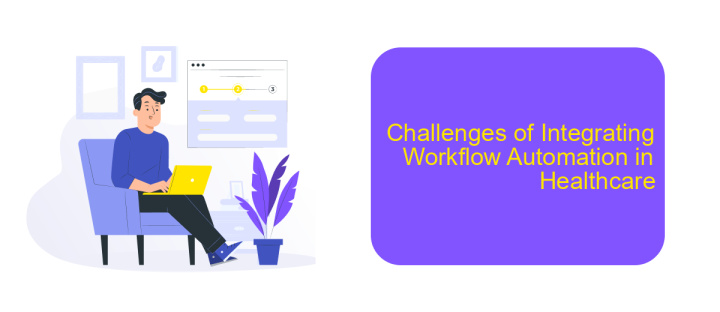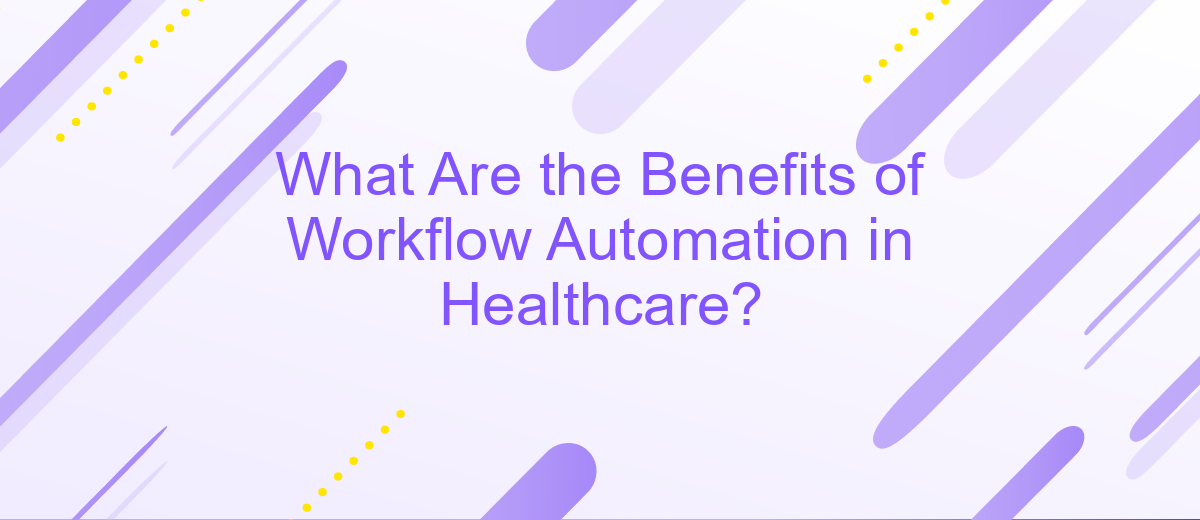What Are the Benefits of Workflow Automation in Healthcare?
Workflow automation in healthcare is revolutionizing the industry by streamlining processes, reducing errors, and enhancing patient care. By automating repetitive tasks, healthcare providers can focus more on patient interactions and less on administrative duties. This not only improves efficiency but also ensures higher accuracy and compliance with regulations. Discover the myriad benefits that workflow automation brings to modern healthcare systems.
Introduction to Healthcare Workflow Automation
Healthcare workflow automation is revolutionizing the way medical facilities operate by streamlining processes and reducing manual tasks. By automating routine activities, healthcare providers can focus more on patient care and less on administrative duties.
- Improved efficiency by reducing time spent on repetitive tasks
- Enhanced accuracy and reduced human error
- Better patient outcomes through more focused care
- Cost savings by optimizing resource allocation
Integrating various healthcare systems can be a complex task, but services like ApiX-Drive make it easier. ApiX-Drive allows seamless integration of different platforms, ensuring that data flows smoothly between systems. This not only enhances operational efficiency but also ensures that healthcare providers have access to accurate and up-to-date information, ultimately improving patient care.
Benefits of Workflow Automation for Healthcare

Workflow automation in healthcare offers numerous benefits, significantly enhancing efficiency and patient care. By automating repetitive tasks such as appointment scheduling, billing, and patient record management, healthcare providers can focus more on patient interaction and less on administrative duties. This not only reduces the chances of human error but also ensures that critical information is accurately recorded and easily accessible, leading to improved patient outcomes and streamlined operations.
Moreover, integrating services like ApiX-Drive allows healthcare systems to seamlessly connect various software applications, ensuring smooth data flow between different platforms. This integration minimizes manual data entry, reduces the risk of data duplication, and ensures that healthcare professionals have real-time access to vital patient information. Consequently, workflow automation and integration facilitate a more cohesive and efficient healthcare environment, ultimately leading to better patient care and operational excellence.
Types of Workflow Automation in Healthcare

Workflow automation in healthcare streamlines various processes, enhancing efficiency and reducing the likelihood of human error. There are several types of workflow automation that can be implemented to achieve these benefits.
- Patient Scheduling and Appointment Management: Automated systems can handle patient scheduling, reminders, and cancellations, ensuring optimal use of time and resources.
- Electronic Health Records (EHR) Management: Automation helps in the seamless updating and retrieval of patient records, improving data accuracy and accessibility.
- Billing and Claims Processing: Automated billing systems can manage invoicing and insurance claims, reducing administrative burdens and speeding up payment cycles.
- Clinical Decision Support: Automated alerts and reminders assist healthcare providers in making timely and informed decisions, enhancing patient care.
- Integration of Systems: Services like ApiX-Drive facilitate the integration of various healthcare systems, enabling smooth data flow and interoperability across platforms.
By incorporating these types of workflow automation, healthcare providers can significantly improve operational efficiency, reduce costs, and enhance the overall quality of patient care. Automation not only streamlines administrative tasks but also supports clinical staff in delivering better outcomes.
Challenges of Integrating Workflow Automation in Healthcare

Integrating workflow automation in healthcare presents several challenges that need to be addressed to ensure successful implementation. One of the primary concerns is the complexity of existing healthcare systems, which often involve multiple legacy systems that are not easily compatible with new automation technologies.
Another significant challenge is ensuring data security and patient privacy. Healthcare organizations must comply with strict regulations such as HIPAA, which requires robust security measures to protect sensitive patient information during the automation process.
- Compatibility with existing systems
- Data security and compliance
- High initial costs and resource allocation
- Resistance to change among staff
- Ensuring continuous system updates and maintenance
Despite these challenges, services like ApiX-Drive can facilitate smoother integration by offering seamless connectivity between different systems and applications. By using such tools, healthcare providers can overcome compatibility issues and streamline their workflow automation processes, ultimately leading to improved efficiency and patient care.
Conclusion and Future Prospects
In conclusion, workflow automation in healthcare presents numerous benefits, including increased efficiency, reduced errors, and improved patient care. By automating repetitive tasks, healthcare professionals can focus more on patient interaction and critical decision-making. This not only enhances the quality of care but also optimizes the use of resources, leading to cost savings and better overall outcomes.
Looking ahead, the future of workflow automation in healthcare appears promising with the integration of advanced technologies such as AI and machine learning. Services like ApiX-Drive facilitate seamless integration of various healthcare systems, ensuring smooth data flow and interoperability. As these technologies continue to evolve, we can expect even more sophisticated automation solutions that further streamline operations and enhance patient experiences. Embracing these advancements will be crucial for healthcare providers aiming to stay ahead in an increasingly digital world.
- Automate the work of an online store or landing
- Empower through integration
- Don't spend money on programmers and integrators
- Save time by automating routine tasks
FAQ
What are the primary benefits of workflow automation in healthcare?
How does workflow automation improve patient care?
Can workflow automation help in reducing costs for healthcare facilities?
What types of tasks can be automated in a healthcare setting?
How can healthcare facilities integrate automation tools into their existing systems?
Time is the most valuable resource for business today. Almost half of it is wasted on routine tasks. Your employees are constantly forced to perform monotonous tasks that are difficult to classify as important and specialized. You can leave everything as it is by hiring additional employees, or you can automate most of the business processes using the ApiX-Drive online connector to get rid of unnecessary time and money expenses once and for all. The choice is yours!


